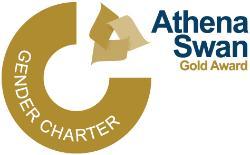Guidelines and policies
SHW email guidance and etiquette

Email signatures
Your SHW email signature should include:
your name
your job title
your unit
your telephone number (if applicable)
your email address
your working pattern
school and college
SHW's strapline
your postal address
university charity details
the Athena Swan Gold logo (available from shw-admin@glasgow.ac.uk)

Should you wish to add the ContactScotland-BSL link, the URL is https://contactscotland-bsl.org/.
Some colleagues may also wish to add their pronouns to their email signature, in line with guidance on the UofG equality and diversity website.
For internal emails, a shorter version of the SHW email signature can be used.

General guidance
- There is no obligation to read or respond to emails outside of usual working hours
You can decide when it suits you to send emails and when it suits you to read and respond to emails from others. Usual or preferred working hours will vary from person to person. You may wish to signal your availability by stating your work pattern in your email signature or by activating the out-of-office autoreply (including on evenings/weekends as well as during periods of leave, if you wish). When sending emails, it can be helpful to include a statement in your email signature to make it clear that an immediate response is not expected. Suggested wording could be: "I sometimes send emails outside of usual working hours for my convenience but do not expect you to read or respond outside of your usual working hours". Consider disabling email notifications, especially on your personal devices, to avoid being distracted by unwanted alerts out of hours. - Don’t assume you can contact someone on their mobile or via social media
If you have contacted someone by email and their out-of-office autoreply is on, you should never assume that you may text or phone them on their mobile number or make contact about a work-related matter via social media (WhatsApp, Facebook, Twitter etc). - Do have a clear subject line
This alerts the recipient to the subject, and helps if searching for emails in future. It’s helpful not to amend the subject line. - Do proofread your message
You may be judged by the way you compose an email e.g. if there are misspellings or typos, you may be perceived as sloppy or careless. - Add your signature
The recipient won’t have to waste time looking up your address or phone number. Make sure you include at least your phone number if you have a different signature for replying to emails. - Don't assume the recipient knows what you are talking about
Include the subject and any references to previous emails, research or conversations. It can be frustrating and time consuming to have to look back at the chain. - Don't "Reply All" (unless you really mean to)
- Don't "Send" to large email groups (unless you really mean to)
- Don’t type in CAPS because it means you are SHOUTING (unless you really mean to – see below)
- Don't "Send" in anger
Never send an angry email, or give a quick, flippant response. Save in Drafts, leave overnight, and read again before sending. - Don't!!! overuse exclamation marks
- Do use "High importance" and "Low importance" tags effectively and appropriately to help colleagues prioritise reading and responding to emails i.e.
- use the "High importance" tag (red exclamation mark) ONLY for emails that are genuinely urgent or if an immediate response is definitely needed
- consider using the "Low importance" tag (blue downward arrow) e.g. if something is for interest only
- Do increase accessibility for British Sign Language (BSL) users
University of Glasgow is trying to increase access for British Sign Language (BSL) users and one of the easiest ways is for staff to highlight within their external email signature that anyone who uses BSL can use the Scottish Government's 'contactSCOTLAND-BSL' service. This allows a BSL user to contact a public service via a trained BSL interpreter who will speak to a staff member on their behalf. All that's required is to add the following statement (including the hyperlink to this service, which is https://contactscotland-bsl.org/) to your external email signature: "British Sign Language (BSL) users can contact me direct by using contactScotland-BSL".
Staff or students who are currently learning BSL may also add the following graphic to the end of their email signature, both for information and for solidarity with Deaf/deaf or hard of hearing colleagues.
Tips for managing your mailbox
Set aside time to read and respond to email
- Consider not leaving your email open all day long as alerts and beeps from incoming messages can interrupt your workflow.
- Schedule specific blocks of time throughout the day for checking your email. You might even try marking your calendar and setting your availability to “busy.”
- You might want to consider an automatic email such as: "I am currently checking and responding to email twice daily at 12 noon and 4pm. If your enquiry is urgent, please contact xxxxx."
Take action as soon as you can
- Making quick decisions and responding as soon as you can will help keep your email inbox under control. Try not to delay until tomorrow what could be accomplished right away.
- When you check your messages, browse the inbox for emails that can be immediately deleted such as spam or promotional emails. Then select messages that don’t require a response and delete or archive them. Once you’ve pared down the number of messages in your inbox, you’ll be able to better evaluate which ones are the most critical.
- Don’t let important emails sit in your inbox for days. Reply to the sender as soon as you’ve read his or her message. If you’re unable to respond immediately, communicate to the sender that you received the message and will be in touch shortly. Set a deadline and follow up.
Organise an inbox with labels, folders and categories
Prioritise, group, sort and file messages to keep your inbox organized. The better your filing system, the easier it will be to locate specific emails when you need them. Create parent categories for broad subjects e.g. projects and finances. Then use subcategories to file emails related to specific projects. Before you file a message, ensure the subject line is search-friendly. If it doesn’t accurately describe the content of the email, edit the subject line before it’s categorised and archived.
Unsubscribe from unwanted promotional emails
Newsletters and advertisements can overwhelm your inbox and bury important messages. Clean out the clutter and unsubscribe where possible.
Etiquette for contacting staff on leave
The following is the advice for PIs, line managers and colleagues of staff who are on leave. This could be a short leave or long leave including maternity, shared parental leave, sick leave or annual leave for example.
Please use common sense when unsure about contacting staff on leave
Where possible (planned leave), keeping in contact should be discussed with each staff member before commencing their leave. There is flexibility to create local arrangements that suit individual staff members, including other forms of communication. Keep in mind that staff may change their mind depending on their leave and circumstances.
It is better to include staff on leave in email communication, but crucial not to expect a reply
Staff on a leave should not feel in any way obliged to check their email or reply to their email. However, if not included in email communication, staff may feel that they have missed out on valuable information. This may include both social activities or work related emails.
Examples of when NOT including staff on leave is disadvantageous
- Grant applications
Being involved in a grant application that is not accepted but gets submitted later elsewhere, and the person is then missed out from the new application. - Grant extensions
Ethical approval application Project requires new ethical application - staff on leave would have liked to be included in the restructuring of the project but are missed out - Vacancies
- Fellowship offers
- Publishing papers
It is OK to include staff in group emails
Suggested wording in an email could be: "For anyone included in the list who is on leave, there is no obligation for you to reply or do anything while on leave."
Emails and sustainability
If every adult in the UK sent one fewer thank you email a day we would save more than 16,433 tonnes of carbon a year – equivalent to 81,152 flights to Madrid or taking 3,334 diesel cars off the road. (Stephen Moss: The Guardian, November 2019)
Many millions of unnecessary emails are sent in the UK every day. Not only are these clogging up our mailboxes and potentially distracting us from more important tasks, they are also damaging the environment. Typing uses up electricity, as does the network through which we send our messages and the cloud/data centre where our messages are stored.
Instead of sending "thank you" emails as a matter of course, please consider adding "Thank you in advance" to the end of your message.
Please also regularly clear out your inbox, your sent items mailbox AND your deleted Items folder, saving only what you anticipate needing to refer to again.
Read more about emails and sustainability
SHW executive group
February 2023


